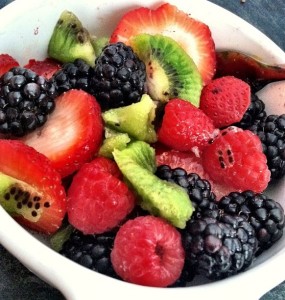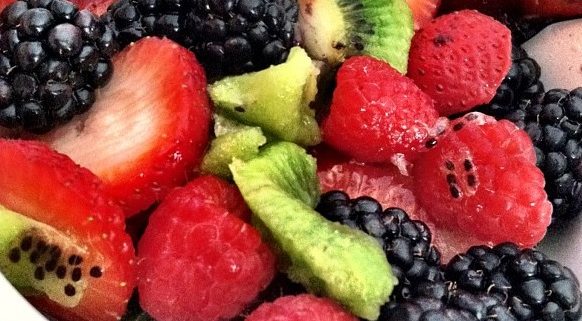Fruits: The Good and the Better
 We all know that fruit is good for you; but are some better than others? Are fruit juices viable substitutions? Which fruits should you be eating everyday?
We all know that fruit is good for you; but are some better than others? Are fruit juices viable substitutions? Which fruits should you be eating everyday?
Recent studies have shown that eating a greater variety of fruits may be more beneficial to oneself than eating a greater quantity. A research study* found that consuming three servings per week of blueberries, grapes, raisins, apples or pears reduces the risk of type 2 diabetes by 7%. Blueberries was the winner of the study in that eating one to three servings a month decreased your chances of type 2 diabetes by 11% and having 5 servings per week decreased your risk by a whopping 26%! However, the study also concluded that if an individual drinks higher amounts of fruit juice, their chances of developing type 2 diabetes increases.
The reason for this is that fruit juices do not have the same abundance of nutrients as whole fruits do. Not only are most fruit juices infused with added sugars and other syrups, but the fiber that is present in whole fruit is lost when it is made into a juice. If your children love to drink fruit juice, be sure that you are giving them 100% fruit juice because even though they contain the same amount of calories as other sweetened fruit drinks, they will provide your child will get more vitamins and nutrients from 100% juice. Just 4 ounces of 100% fruit juice is equivalent to 1 serving of fruit (minus the fiber). However, you should still limit your child’s juice drinking to 4-6 ounces per day.
It’s always better to consume whole, fresh fruits. If you find that the fresh fruit you buy tends to go bad quickly, you can always freeze it or buy frozen fruit. If you opt for frozen fruit, avoid those with added sugars and syrups. Natural frozen fruit has no less nutrients than fresh fruit does, so it can be a good option.
Eating a variety of different fruits provides your body with a variety of antioxidants, phytochemicals and other nutrients that will help to decrease your susceptibility to certain diseases. Ensuring adequate amounts of blueberries, grapes, raisins, apples and pears, according to this recent research, will also help reduce your risk of type 2 diabetes.
Your turn to take action: What are your favorite fruits….do you have enough fruit variety?
*BMJ 2013; 347 doi: http://dx.doi.org/10.1136/bmj.f5001 (Published 29 August 2013)


Leave a Reply
Want to join the discussion?Feel free to contribute!